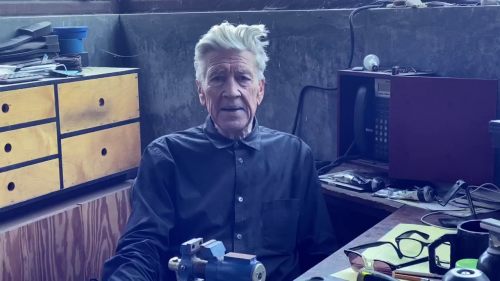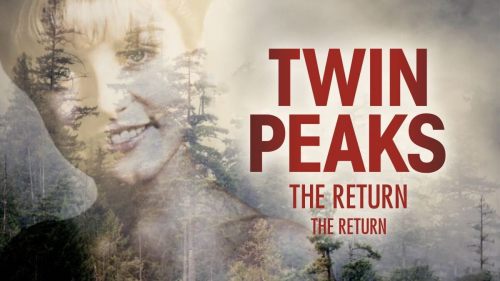TWIN PEAKS Season Three: Are We Prepared for an 18-Hour FIRE WALK WITH ME?
As Scott already outlined earlier today, a new Variety profile dropped, detailing the long, sordid struggle to get Twin Peaks back on the air at Showtime. There are tales of a 400-page document (which co-creator Mark Frost compares to the Manhattan phone book) hand-delivered by David Lynch as an outline of what the creative team planned to shoot and then cut into individual episodes. This mysterious third season will take place in three different parts of the country, each of these geographically separated narratives converging at some point (one would imagine in the titular town). The sprawling story will follow more than 200 characters, some of which will be played by Lynch regulars (like Laura Dern) and left field newcomers (like Tim Roth). All in all, it’s a rather intimidating read that reinforces just how epic this return to the haunted Pacific Northwest municipality will be.
However, there is some minor cause of concern when it comes to the tone of this Twin Peaks revival, as Lynch reiterated what he’d already stated at the network’s TCA panel in January:
One last clue: the film Twin Peaks: Fire Walk With Me, he says, is very important to understanding what’s coming May 21.
There are several ways to interpret this cryptic hint. While it by no means indicates that season three will be an 18-hour Fire Walk With Me redux, you certainly could construe it to literally mean just that. How one even attempts to imagine Lynch’s dizzying, hyper-emotional recount of the last week in Laura Palmer’s life stretched out to almost a day-long feature is another question entirely. Fire Walk is more than worthy of inclusion when it comes to debating the very best work the writer/director has done on either the big or small screen. It’s an apocalyptic bit of artistry, taking you deep inside the psyche of a sexual abuse survivor, forcing you to fall in love with this vulnerable girl all over again, and then leaving the audience in a pile of ash and debris as Laura ascends from this mortal plane with the angels who couldn’t aid her during existence. The last time this writer watched the movie, it was on 35mm with a sold-out crowd of complete strangers, many of whom shed tears in the lobby afterward. Fire Walk With Me isn’t a mere horror movie – it’s a soul shredding descent into the cruelty of being, and how men destroy the most beautiful things they come in contact with.
Naturally, that level of catharsis doesn’t lend itself to easily digestible one hour episodes that leave you wanting to tune in next week. Even as someone who counts Fire Walk amongst their very favorite motion pictures, I’m in zero rush to revisit it (though will do so, right before season three is set to air). What’s equally fascinating is the fact that Lynch has not crafted anything beyond shorts, music docs and videos since delivering his bleak, blown out DV nightmare, Inland Empire, in 2007 (at which point, the director stated he’d abandoned celluloid forever – a promise he’s keeping with this new round of Peaks). Spooky abstraction has been the name of the game ever since his rather brazen act of cinematic rebellion in ’92. There have been exceptions to this rule (like the failed variety show goof On the Air [‘92] or lovely lawnmower man movie, The Straight Story [‘99]), but Lost Highway (’97), Mulholland Drive (’01) and Inland Empire (’07) have all felt like variations on themes of guilt, regret and “women in danger” that have plagued Lynch’s brain since the combative failure of Fire Walk.
While we’re on the subject, it seems pertinent to point out that the critical re-evaluation of Fire Walk With Me is a rather recent phenomenon. When the film premiered at Cannes in 1992, it was met with near universal derision. Vincent Canby commented in his review “it’s not the worst film ever made; it just seems to be.” Quentin Tarantino cites his festival viewing as the moment he swore off David Lynch films entirely. Fire Walk is a self-aware contradiction of terms in regards to how Lynch treats the original series (which he mostly abandoned after ABC forced him to reveal Laura Palmer’s murderer halfway through its second season). Gone completely is the jokey, genuine tone that made so many viewers feel at home in this oddball corner of America. All that remains is darkness and death, as Lynch himself has stated that the film is about "the loneliness, shame, guilt, confusion and devastation of the victim of incest.” Those doing their intense re-watches a week before the May 21 premiere should probably keep that in mind while they’re giggling at Harry S. Truman and Special Agent Cooper as they bro down over a lavish spread of donuts.
At the same time, this is where the inverse interpretation of Lynch’s quote comes into play. Season three could be another bucking of expectations – a refutation of bleakness that has nothing to do with the actual narrative or tone of Fire Walk With Me, but instead the intent behind its inception. Lynch could be warning us not to place any semblance of expectation on the season at all, and simply allow him to work his dark magic in ways we could never dream up. Part of the success of the original Twin Peaks is that it offered up something the American public had never seen on primetime network television during that era. Lynch and Frost’s initial set of episodes were like a surrealist reinvention of Paul Monash and Irna Phillips’ Peyton Place (’64 – ’69), wholly embracing the camp nature of soap operas while retaining the creators’ bizarrely imaginative tics. The best bet for everyone chomping at the bit for the series’ return is to jettison any sense of nostalgia for either the original series or Fire Walk With Me. Because, in the end, we’re still going to be ingesting eighteen hours of new material from one of the great artists to ever pick up a movie camera. Really, that simple fact means none of us are prepared for whatever this third season ends up being. Embrace the mystery, for better or worse.



